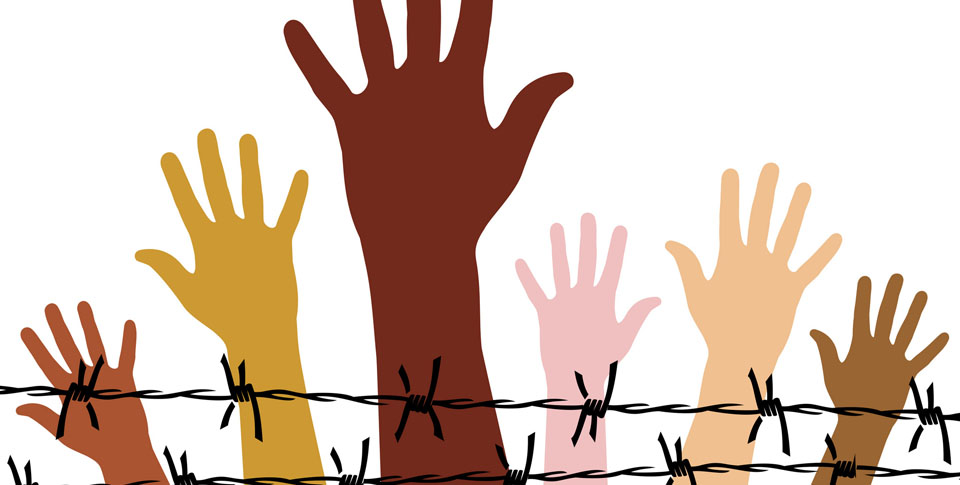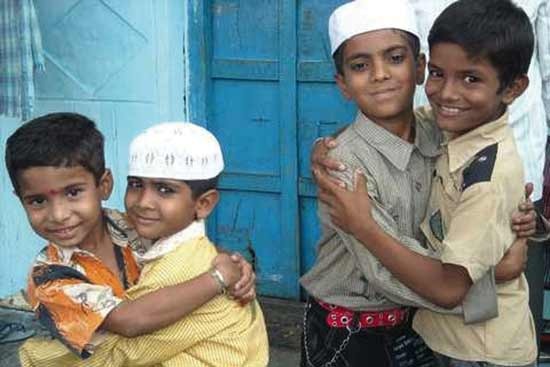
The frustration of those who lost hope of any retaliatory action against human rights violators in Bangladesh has finally been eased, at least partially, by the recent US Treasury Department’s action against a few law-enforcers in the country, well-known for gross human rights violations. The Office of Foreign Assets Control (OFAC) of the US Department of the Treasury has designated 15 individuals and 10 entities for their involvement in human rights abuse and repression in China, Myanmar, North Korea, and Bangladesh. The sanctions are very selective – only targeting a handful of people in a handful of countries, excluding other human rights violators from countries like Brazil, Congo, Egypt, India, the Philippines, and Saudi Arabia – but anyone who respects democracy, human rights, and dignity ought to be happy with the sanctions. In Bangladesh and elsewhere, many expect the Biden Administration to make a difference for upholding human rights and dignity and taking tough action against governments that are violating human rights with impunity, like the one led by Sheikh Hasina since 2009.
Considering that the Biden Administration is taking retaliatory measures against North Korea and Myanmar in order to counter China and its allies, one wonders whether its action against Bangladesh is unique since Bangladesh is not a Chinese ally. However, it cannot be ruled out that Bangladesh’s close ties with China may have played a role in US punitive measures against the country. As a result, one might surmise that the blacklisting of human rights violators in Bangladesh is also an indirect retaliation against China, and a warning to the Hasina Regime about the consequences of too close a relationship with China, which Washington has a dislike for. Seemingly, it’s a not-so-subtle effort to pressure the Hasina Regime to join the US-led Quad to intimidate China.
Throughout history, from Napoleon’s Continental System (1806-1814) against Britain to different types of embargoes on nations, sanctions have been imposed by one or more nations against one or more entities (states or individuals) in order to punish them for “wrongful action”. They sometimes work, sometimes they don’t. Violations of moral principles, such as human rights, and international law, can result in sanctions for nations and individuals. The sanctions could be economic, political/diplomatic, or military, among others. Sanctions are designed to force compliance with international law or certain principles dear to the nations that impose them on others for their violations and may be withdrawn once the sanctioned entities comply. Examples abound. Napoleon’s Continental System was the first widely known sanctions against Britain in modern history, which were ineffective. The international sanctions imposed by the United Nations on South Africa, Rhodesia (Zimbabwe) and Iraq following the invasion of Kuwait on 6th August 1990 (Resolution 661) are other examples. In this regard, the Biden Administration’s sanctions (officially announced on 10th December) against certain law-enforcers in Bangladesh are the latest example. It’s too early to tell whether they will be implemented, withdrawn, or complied with by the Bangladesh Government. Moreover, one is not sure whether the Biden Administration is going to impose fresh sanctions on more individuals, including ruling party leaders in Bangladesh and/or the Hasina Administration per se. Nevertheless, there is an opinion that Bangladesh is very vulnerable to Western sanctions, especially those imposed by the US, a major buyer of Bangladeshi apparel and the main source of the country’s export income. Lastly, if the sanctions remain in place in the future, Bangladeshi law enforcers will lose their properties bought in the US, Canada, the UK, and elsewhere in Western Europe (presumably with stolen money).
Seven of the 16 individuals OFAC has designated as violators of human rights are from Bangladesh, and the US Department of State has announced visa restrictions on each of them, including Benazir Ahmed (the current Inspector General of Police), who served as Director-General of the RAB from January 2015 to April 2020, and General (retired) Aziz Ahmad, who served as chief of the Bangladesh Army.
The allegations made by OFAC against Bangladeshi law enforcement, “SERIOUS HUMAN RIGHTS ABUSE IN BANGLADESH: RAPID ACTION BATTALION,” go as follows:
Widespread allegations of serious human rights abuse in Bangladesh by the Rapid Action Battalion (RAB) – as part of the Bangladeshi government’s war on drugs—threaten U.S. national security interests by undermining the rule of law and respect for human rights and fundamental freedoms, and the economic prosperity of the people of Bangladesh…. Additionally, the following individuals are designated pursuant to E.O. 13818 for being foreign persons who are or have been a leader or official of RAB, an entity that has engaged in, or whose members have engaged in, serious human rights abuse relating to their tenure:
Chowdhury Abdullah Al-Mamun, Director General, RAB, April 15, 2020 to present
Benazir Ahmed, former Director General, RAB, January 2015 to April 14, 2020
Khan Mohammad Azad, Additional Director General (Operations), RAB, March 16, 2021 to present
Tofayel Mustafa Sorwar, former Additional Director General (Operations), RAB, June 27, 2019 to March 16, 2021
Mohammad Jahangir Alam, former Additional Director General (Operations), RAB, September 17, 2018 to June 27, 2019
Mohammad Anwar Latif Khan, former Additional Director General (Operations), RAB, April 28, 2016 to September 17, 2018
[U.S. Department of the Treasury Press Release, “Treasury Sanctions Perpetrators of Serious Human Rights Abuse on International Human Rights Day”, December 10, 2021].
A bolt from the blue isn’t what led to the sanctions. As a result of the blatant abuses of human rights perpetrated by the RAB, scores of US legislators had been contemplating this for several years before the Biden Administration decided to enact it on seven Bangladeshi law enforcers last Friday. Meanwhile, the Bangladesh foreign minister Abdul Momen dismissed the Biden Administration’s decision not to invite Bangladesh to the virtual Democracy Summit (held on the 9th and 10th December 2021) with a ridiculous argument, namely that only countries with weak democratic institutions were invited to the summit! Furthermore, he has reacted unabashedly to the sanctions: “There have been only 600 extrajudicial killings in Bangladesh in the past ten years”.
[ Prothom Alo (Bengali daily) 11 December 2021].
Although liberal democrats anywhere have strong contempt for one-party rule and violations of human rights, defenders of authoritarian rule have counter arguments. As one analyst has pointed out: “Chinese talking points about one-party rule hold some appeal in more countries than Mr Biden may care to admit. That is not just true in states wooed with Chinese money or diplomatic backing for local despots. Lots of countries feel little nostalgia for the post-1945 era dominated by the American-led world order, and are eager for alternatives.” [Chaguan, “Why China says it is a democracy: Dysfunction in the West tempts the party to make risky boasts”, The Economist, December 4th 2021].
Furthermore, sanctions against a handful of Bangladeshi law enforcers for persistently violating human rights are not directed solely at the Hasina Regime, but also at Beijing. These are definitely integral components of the US’s and its allies’ not-so-hidden China-bashing policy. One example might be the Biden Administration imposing some sort of sanctions on the upcoming Winter Olympics in China. Several US lawmakers and politicians have urged their governments to boycott the event. Finally, the US has announced its diplomatic boycott of the 2022 Winter Olympics in China. As a result of the human rights situation in China, the White House said no official delegation would be sent to the Games.
Therefore, it appears that the US sanctions on Bangladeshi law enforcers are a warning to Hasina to join QUAD along with India. Will Hasina be able to afford this? Doesn’t she seem to be stuck in a bind? In other words, she faces an existential threat. She can’t appease both the US and China. India, the behemoth of South Asia, practically a hegemon for Bangladesh, sides with the US on this issue. Is Bangladesh able to keep both India and China in good humour? Perhaps a positive “No” is the right answer! Yet another important question remains unanswered: Can Bangladesh afford to borrow billions of dollars from China at about 13 per cent interest? In the coming years, the country will suffer if the return on all infrastructure projects financed by Chinese loans is less than the exorbitant interest rate.
Sino-US relations are critical to the future of South Asia and the world at large. The US can’t afford a war with China, not even a cold war with the rising power, so why are they so adventuristic? Besides, India is detested by all its immediate neighbours. So, the US must be sensitive to the concerns of the vast majority of Bangladeshis. Moreover, the Hasina Regime commits widespread and well-known human rights violations. Retaliating against RAB and Awami League is welcome, but selective intervention to cow a superpower like China is counterproductive. The US must understand that it can’t impose anything on China, and the Hasina Regime is in the most precarious position, unable to simultaneously appease both China and India. Ironically, Hasina requires Indian political support as well as Chinese investment to remain in power. India also needs Bangladesh for effective connectivity with its Northeast. The Deep State is also crucial to her survival. The Deep State, which has been turned into a death squad by succeeding regimes in the country, is often like Frankenstein’s monster. Hasina’s dictatorial, illegitimate rule is at risk if she keeps playing with fire and monsters. Washington’s sanctions could precipitate it!
There are different geopolitical priorities in different countries, which may lead them to establish ties with countries where there is a one-party regime with a disputed human rights record. During the Cold War, the Western democracies, particularly the United States, maintained close diplomatic, economic, and military ties with countries that had very poor human rights records in order to contain the USSR, their common enemy. Bangladesh is no exception to this rule. Although this is the case, Bangladesh’s main problem is that it is simultaneously trying to befriend and rely on both India and China (for political, economic, and military reasons), who have historically been hostile to each other. It has been problematic to follow this path. This diplomatic disorder can be attributed to the unscrupulous hedonism and opportunism of the ruling elites in Bangladesh, particularly since Sheikh Hasina became prime minister in 2009.
In sum, the Hasina Regime is extremely unpopular in Bangladesh, whoever is backing it must understand that. Aziz Ahmad and Benazir Ahmed, two of the indicted people, are nearly as unpopular as Hasina. In addition, India is very unpopular in Bangladesh. In other words, when it comes to deciding the domestic and foreign policy of Bangladesh on its own, India has very limited or no options. As paradoxical as it seems, Bangladeshis at large approve of US sanctions, without understanding their true purpose (which is primarily to hurt Chinese interests in the country). Bangladeshis are also opposed to Bangladesh joining the Quad, the US-led military alliance against China, let alone following the Indian approach. Thus, the Biden Administration would be better off by simply imposing sanctions against the human rights violators in the country – including MPs, ministers, local leaders, and stalwarts of the ruling party – rather than trying to armtwist the country to join the Quad or come closer to India. As a final note, India has no reason to rejoice about the US sanctions against Bangladeshi law enforcers, as the majority of Bangladeshis believe the country has morphed into a satellite of India since Hasina took up office in 2009. For them, Indians are the bad guys in their country, not Chinese. Thus, while the US sanctions are integral to its China-bashing policy, if the Hasina Regime fails to toe the US line, the latter can punish the dictatorial Hasina Regime by default, a regime that thrives on human rights violations. Is it, however, likely to happen, or does America really want the world at large to practice democracy and respect human rights? Tricky questions!
Taj Hashmi is a retired Professor of Security Studies at the APCSS in Honolulu (Hawaii). His major publications include Pakistan as a Peasant Utopia (Routledge 2019), and Global Jihad and America: The Hundred-Year Beyond Iraq and Afghanistan (SAGE 2014). Palgrave-Macmillan is publishing his next book, Fifty Years of Bangladesh, 1971-2021: Crises of Culture, Governance, and Identity.
















































